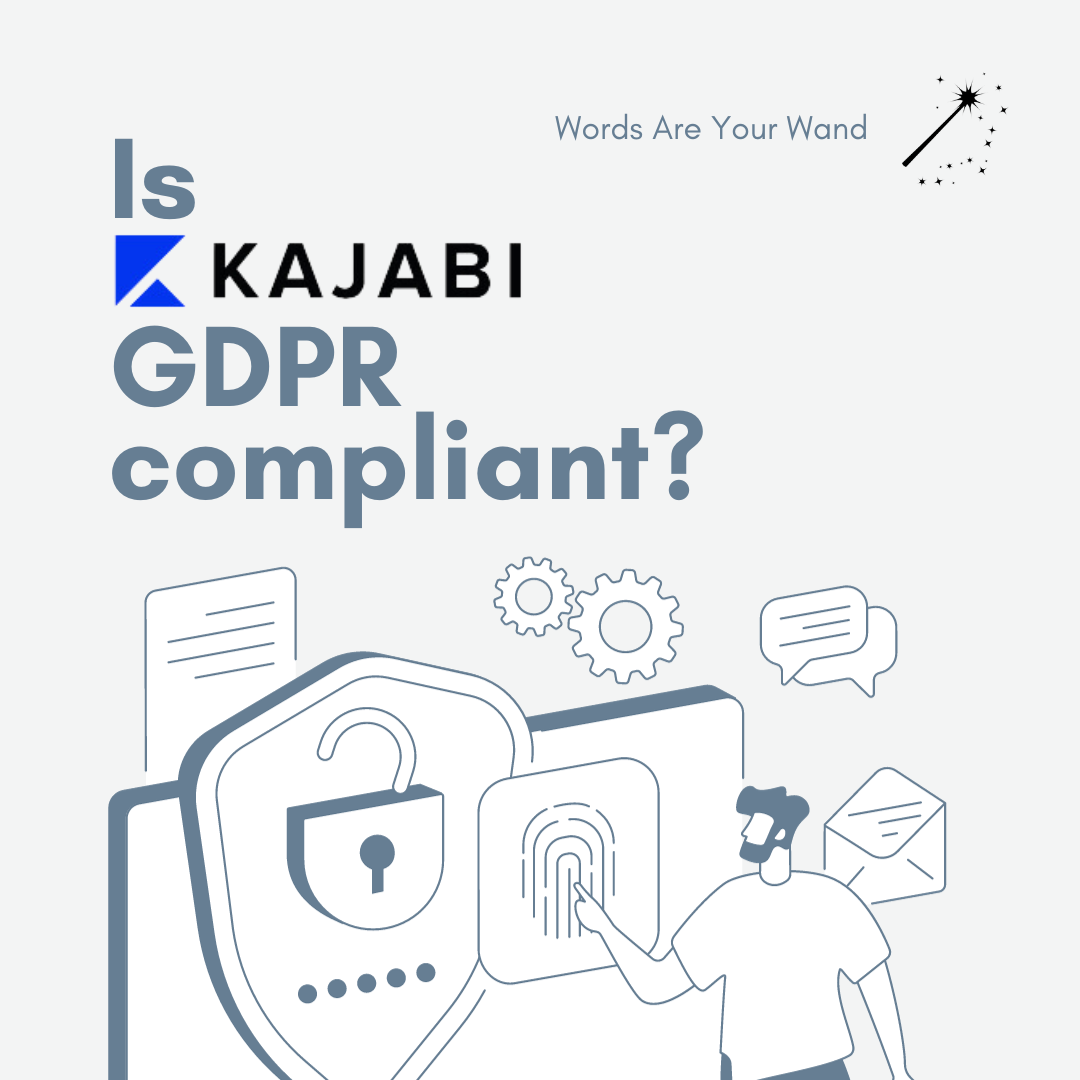In this article, you will know everything about Kajabi GDPR compliance.
Content Guide
Understanding GDPR

The General Data Protection Regulation (GDPR) is a regulation in EU law on data protection and privacy for all individuals within the European Union (EU) and the European Economic Area (EEA). It came into effect on May 25, 2018, and replaced the 1995 Data Protection Directive.
GDPR aims to give individuals more control over their data and how it is collected, processed, and stored by organizations. It requires companies to be transparent about their data collection and processing practices, obtain consent from individuals before collecting their data, and allow individuals to access, correct, or delete their data.
The regulation applies to all organizations that process the personal data of EU citizens, regardless of where the organization is located. It imposes significant fines for non-compliance, up to €20 million or 4% of the company’s global annual revenue, whichever is higher.
To comply with GDPR, organizations must implement appropriate technical and organizational measures to ensure the security and confidentiality of personal data. They must appoint a data protection officer (DPO) to oversee compliance and handle data protection issues.
Kajabi is GDPR compliant and has taken steps to ensure that its platform helps its users comply with GDPR. It provides features that allow users to obtain consent from their customers, manage their data, and delete it if necessary.
Kajabi also completed a Data Protection Impact Assessment (DPIA) to ensure it could close gaps and remain compliant beyond the May 25, 2018 deadline.
3 Measures of Kajabi GDPR Compliance

Kajabi is a platform that helps individuals and businesses create and sell online courses, digital products, and memberships. As a platform that deals with sensitive user data, Kajabi has taken measures to ensure that it complies with the General Data Protection Regulation (GDPR).
1. Data Protection Policies
Kajabi has implemented data protection policies that align with GDPR requirements. These policies cover areas such as data minimization, data accuracy, and data retention. Kajabi also allows users to export and delete their personal data upon request.
2. Data Breach Notification
In the event of a data breach, Kajabi has policies to notify affected users within 72 hours of discovering the breach. Kajabi also takes steps to mitigate the breach’s impact and prevent future breaches.
3. User Consent and Rights
Kajabi ensures that users provide explicit consent for collecting and processing their personal data. Users also have the right to access, rectify, and delete their data. Kajabi allows users to manage their data preferences and opt out of marketing communications.
Overall, Kajabi is GDPR compliant and takes user data protection seriously. By implementing data protection policies, data breach notification procedures, and user consent and rights measures, Kajabi provides a secure and trustworthy platform for its users.
3 Kajabi GDPR Compliance Features

Kajabi is a platform that offers a variety of features to help its users comply with the General Data Protection Regulation (GDPR). Here are some of the key GDPR compliance features in Kajabi:
1. Data Access and Portability
Kajabi allows users to access and export their data. This feature helps users comply with GDPR’s Article 20, which gives individuals the right to access and receive a copy of their data. Users can export their data in a structured, commonly used, and machine-readable format. Kajabi also provides users with the ability to delete their data.
2. Data Erasure
Under GDPR’s Article 17, individuals have the right to have their data erased, also known as the “right to be forgotten.” Kajabi offers a data erasure feature that allows users to delete their data from the platform. This feature helps users comply with GDPR’s data erasure requirements.
3. Data Protection Officer
Kajabi has appointed a Data Protection Officer (DPO) to help ensure compliance with GDPR. The DPO is responsible for monitoring Kajabi’s GDPR compliance, providing advice and guidance on GDPR-related matters, and acting as a point of contact for individuals and authorities.
In conclusion, Kajabi offers a variety of features to help its users comply with GDPR. These features include data access and portability, data erasure, and a Data Protection Officer. Kajabi helps its users comply with GDPR’s requirements and protect their data by providing these features.
Third-Party Integrations and GDPR Compliance

When it comes to third-party integrations, Kajabi offers a variety of options that can help you stay GDPR compliant. These integrations allow other platforms to work seamlessly with Kajabi, providing you with various tools to manage your business.
Email integrations, such as Aweber, Mailchimp, Drip, ConvertKit, and ActiveCampaign, can help you collect and manage email addresses in a GDPR-compliant way. These integrations ensure that your email marketing campaigns comply with GDPR, including double opt-in consent and the right to be forgotten.
Analytics integrations like Google Analytics and Meta Pixel can help you track your website’s performance and optimize your marketing efforts. However, it’s important to ensure that these integrations are configured in a GDPR-compliant way, including anonymizing IP addresses and obtaining user consent for data collection.
It’s also worth noting that Kajabi provides a range of features that can help you maintain GDPR compliance, including data collection forms and web pages that can be customized to meet GDPR requirements. Kajabi is designed to help you comply with privacy regulations, including GDPR, and the platform is fully GDPR-compliant.
Overall, if you’re using third-party integrations with Kajabi, it’s important to ensure that these integrations are configured in a GDPR-compliant way. By using Kajabi’s built-in features and working with GDPR-compliant third-party integrations, you can ensure that your business complies with GDPR and protects your customers’ privacy.
Challenges and Solutions for Kajabi GDPR Compliance

Ensuring GDPR compliance is a challenge for any business that collects and processes personal data of individuals in the European Union. Kajabi, as a platform that provides online business solutions, has taken steps to ensure its compliance with GDPR. However, there are still some challenges that Kajabi users may face regarding GDPR compliance.
One of the main challenges for Kajabi users is ensuring that their use of the platform is GDPR compliant. This includes obtaining proper consent from individuals for collecting and processing their personal data, providing individuals with access to their data, and ensuring that data is deleted upon request.
Kajabi provides tools and features to help users with these tasks, including GDPR-compliant forms and opt-ins, data export and deletion features, and a Data Protection Addendum that outlines Kajabi’s GDPR compliance.
Another challenge is ensuring that any third-party tools or services integrated with Kajabi are GDPR compliant. Kajabi provides a list of third-party tools it has vetted for GDPR compliance, but users should still research to ensure compliance. Users should also ensure that any data transfers outside of the EU are done using appropriate mechanisms, such as Standard Contractual Clauses.
Overall, while there are challenges to ensuring GDPR compliance in Kajabi, the platform provides solutions and tools to help users meet these challenges. Using these tools and following best practices, Kajabi users can ensure that their platform is GDPR compliant and that their customer’s data is protected.

